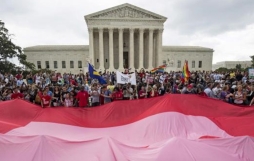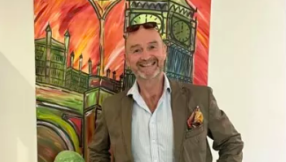We must try to understand ISIS, the former Archbishop of Canterbury Rowan Williams has urged.
Dr Williams directed his comments primarily at journalists as he gave the 2015 Orwell Lecture at University College London, criticising the media for "dehumanising" ISIS. He urged reporters to "attempt to understand our enemies."
"Somehow the obstinate attempt to make sense of those who are determined to make no sense of me is one of the things that divides civilisation from barbarism, faith from emptiness. You have to try," he told Lapido Media after the lecture.
What characterised human imaginations was the effort to "imagine to other," he said after the lecture entitled 'War, Words and Reason.'
"I think the hardest thing we face at the moment is that: how do we imagine the unimaginable mentality of somebody who thinks that God or justice or the future...is honoured by slaughter and barbarity?"
He said it was vital for a functioning society to have "civil disagreement." The trend for "othering" people who disagreed and "no-platforming" speakers was dangerous.
"The law is reasonably clear and helpful on this," he said. "There is 'hate speech' which is defined as inciting hatred and inciting the actions that follow hate." But banning controversial people when it is clearly not hate speech is "alarming," the former head of the Anglican communion said.
"Debates about international issues like Israel and Palestine, or issues of personal and social morals – abortion, gender and sexuality, end-of-life questions – are regularly shadowed by anxiety, even panic about what must not be said in public, and also by sometimes startlingly coercive insistence on the rational and canonical status of one perspective only."
The answer was education, he said.
"Not in the silencing of disagreement but in the education of speech. How is unwelcome truth to be told in ways that don't humiliate or disable?
"The answer to that question is inseparable from learning to argue."














